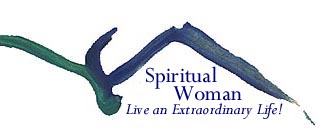 Please Support this Site!
Please Support this Site!
Visit the Spiritual Woman Blog
Get RSS Feed at http://feeds.feedburner.com/SpiritualWoman
 Please Support this Site!
Please Support this Site!
|
Please subscribe to our free ezine below: |
Visit the Spiritual Woman Blog Get RSS Feed at http://feeds.feedburner.com/SpiritualWoman |
|
Home Prayer Christmas Discerning the Will of God Relationships and Family Finding Meaning in Work Health and Wellness Nurturing the Creative Spirit When Life Hurts Spiritual Direction Profiles in Faith Book Reviews Links Contact Us Submit an Article |
 Israel's Story, Part OneCollegeville, MN: Order of Saint Benedict, 2006 Reviewed by Patrice Fagnant-MacArthur The cultural differences between our world and the world of the Israelites in the Old Testament are substantial. As a result, reading the books of the Old Testament can be extremely confusing. Dianne Bergant, C.S.A., Ph.D., a professor of Old Testament studies at Catholic Theological Union in Chicago, attempts to alleviate some of that confusion for those who are studying the Old Testament for the first time and for those who are interested in digging deeper into the texts. Bergant begins by examining some of the source material for the scriptures. She identifies the four major traditions that influenced the final written product. She also discusses the different literary styles that are used in the Bible as well as the special meaning of "myth" as it relates to the Old Testament. "Israel's Story" offers an overview of all of the major characters as well as many of the minor ones, who helped to shape the history of the Jews. Bergant also includes historical evidence that may or may not coincide with the Biblical text. While the Bible is not a purely historical document, history still does provide a framework for some of the events that are retold in its pages. She also tries to place the Bible in its appropriate cultural context. Part one covers the Book of Genesis through the time in which Israel was split into two kingdoms. Bergant concludes this first installment by reflecting that "Regardless of the changes that took place in the lives of the Israelites, the one constant remained: God was there for them, to protect them, and to provide for them." Bergant promises to continue the story of the Israelites changing relationship with God in the second part. "Israel's Story" would be a useful text in college-level introductory courses on the Old Testament. It is also useful for those who simply want to learn more about that section of the Bible. It provides a good framework for understanding the main themes and characters. Patrice Fagnant-MacArthur is editor of Spiritual Woman. Visit her blog at spiritualwomanthoughts.blogspot.com |